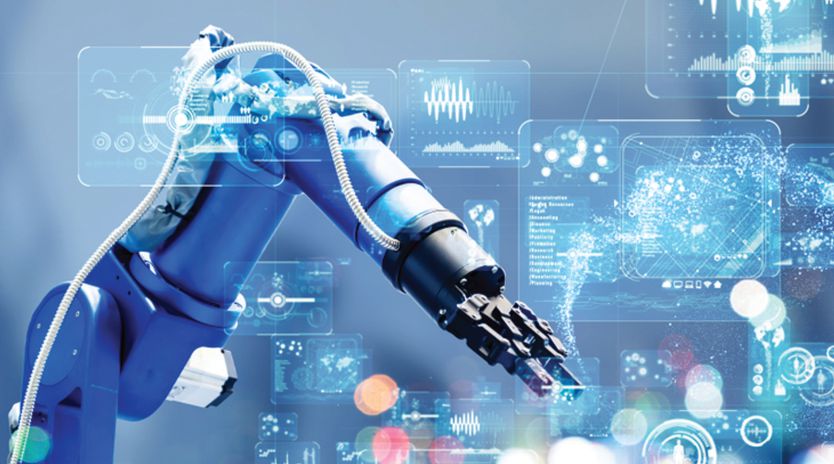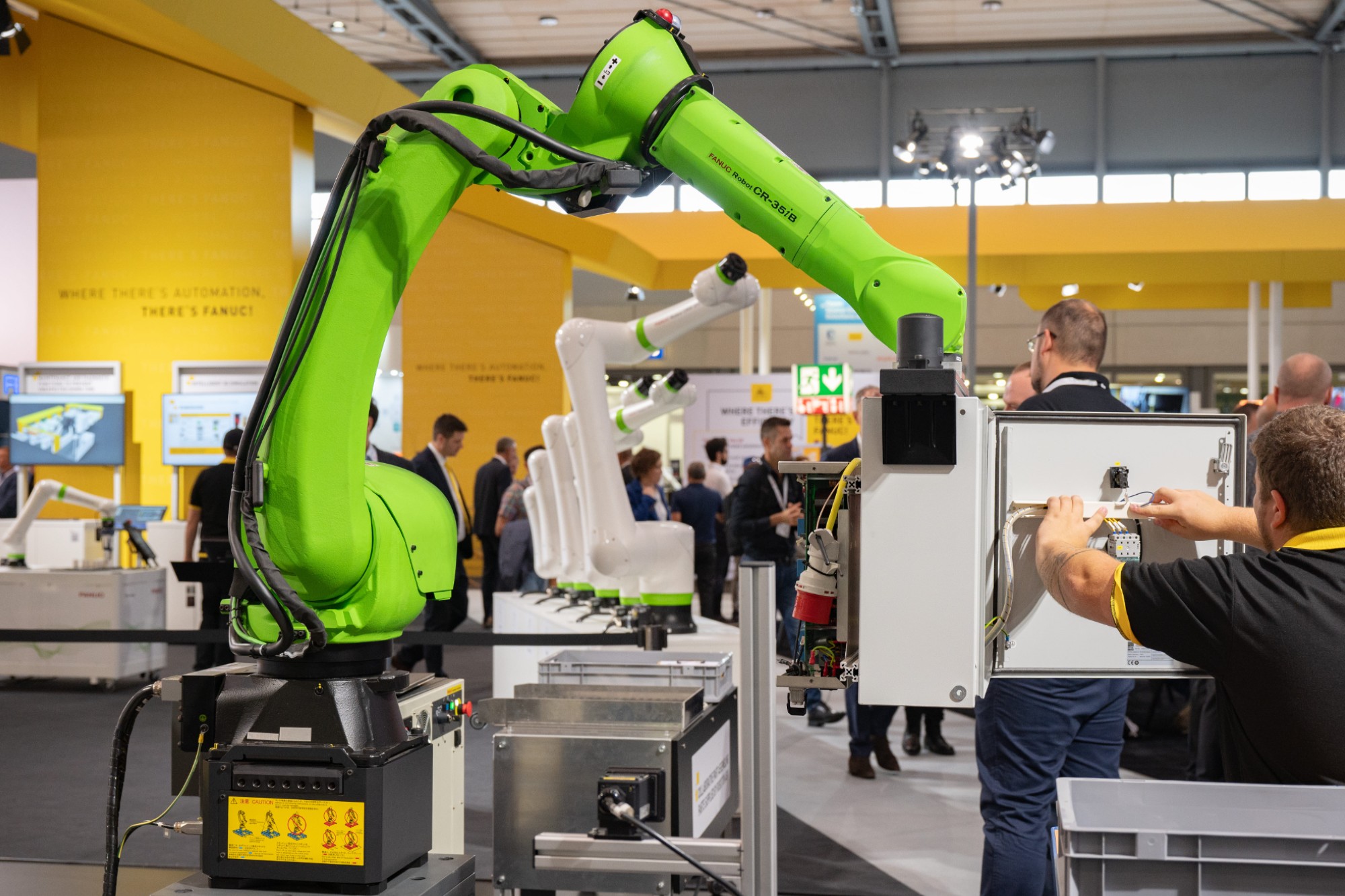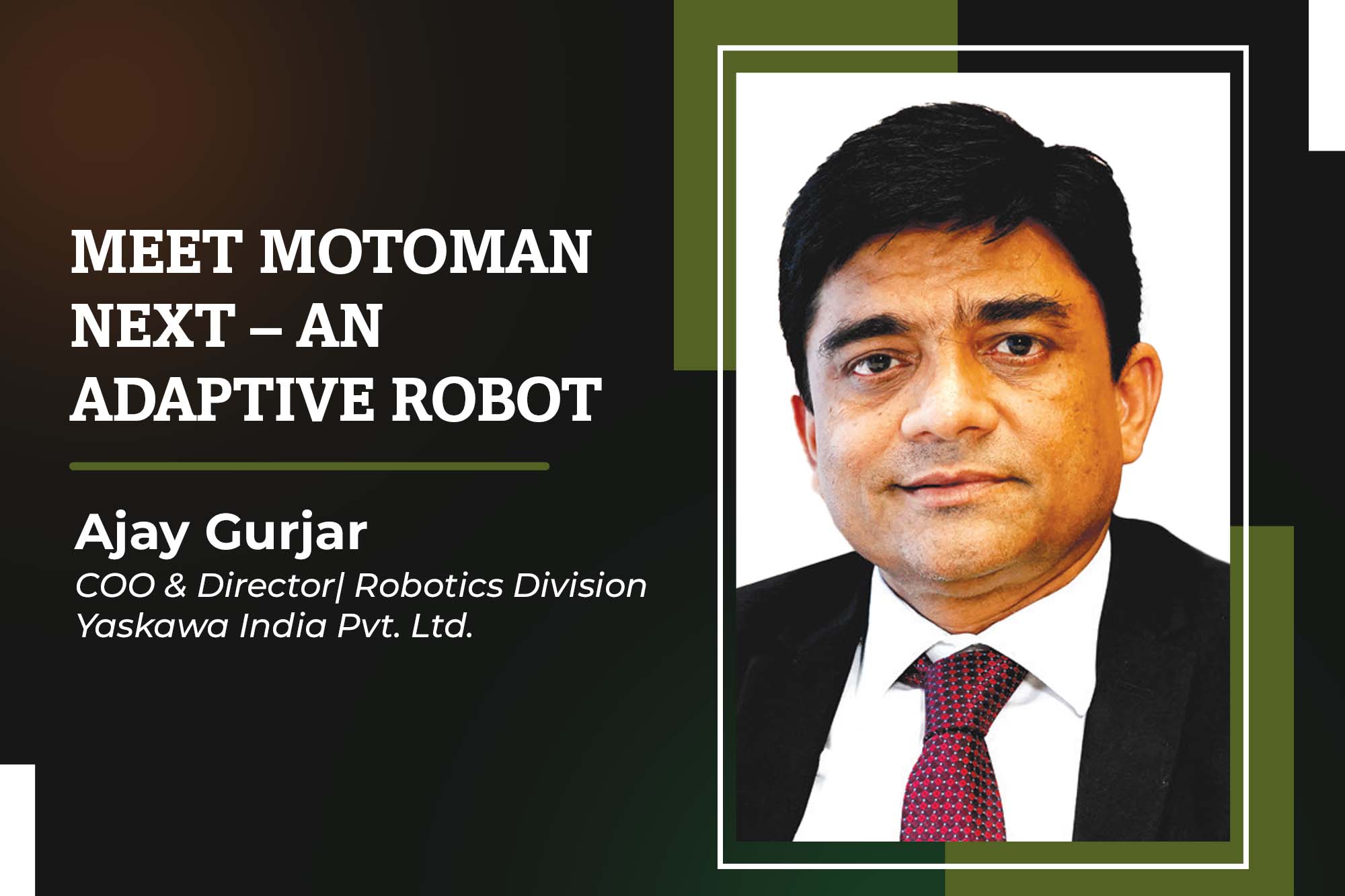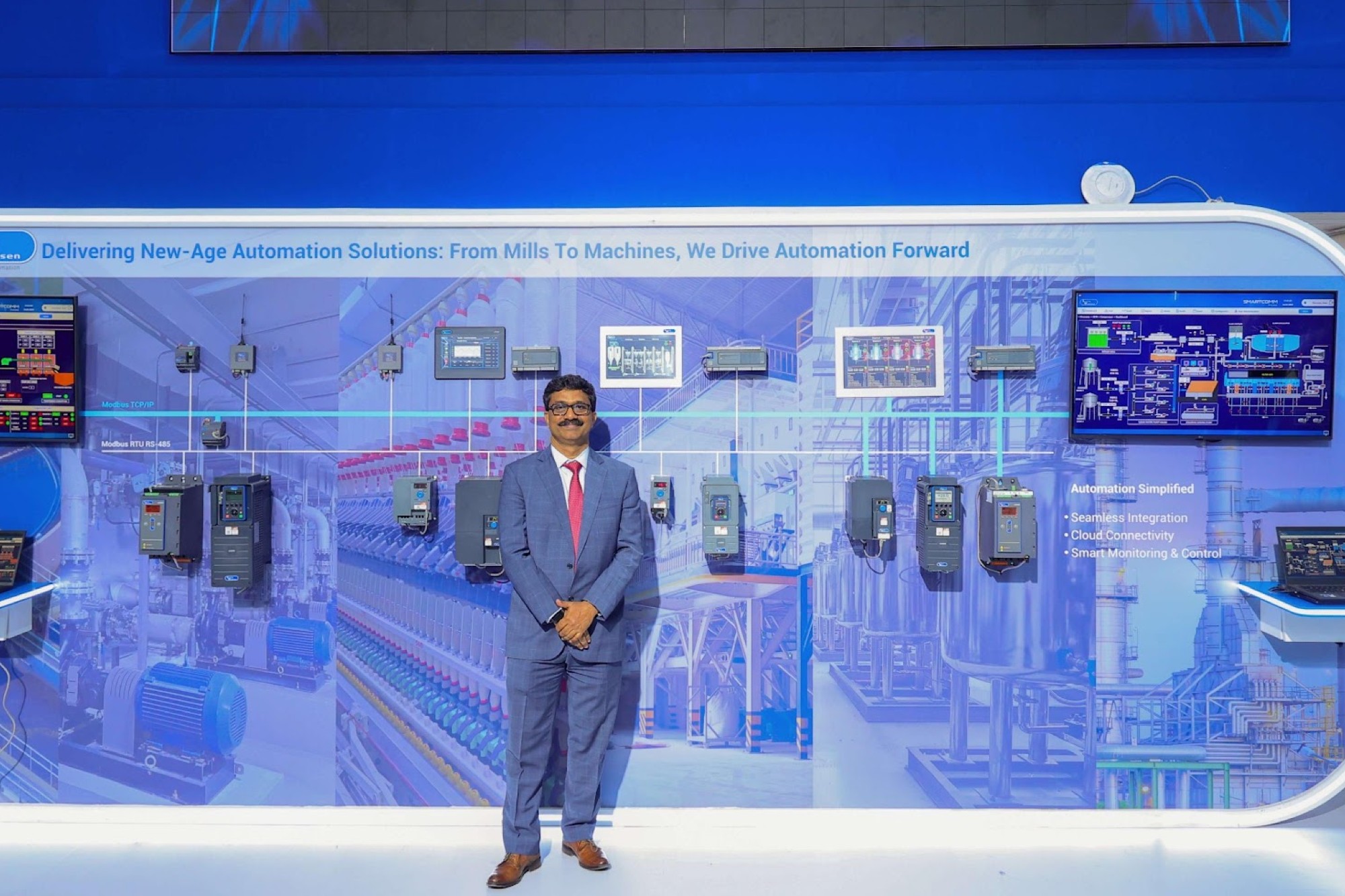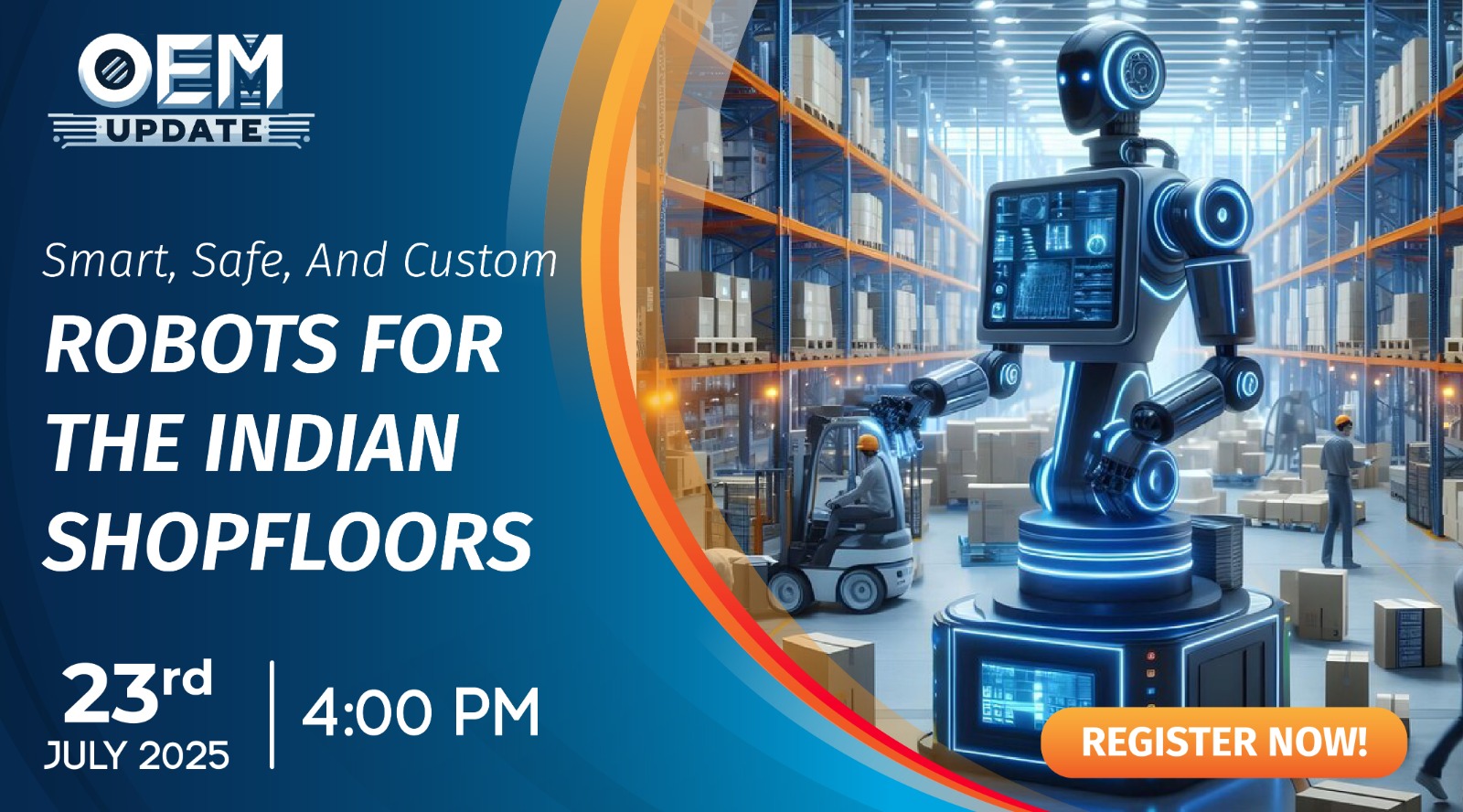Manufacturing curves with digitalisation to optimize production
By OEM Update Editorial June 10, 2022 10:13 am IST
In today’s digital revolution era, Industry 4.0/ 5.0 advancements – comprising nine technology pillars are catalysing to maximize production and expand automation in manufacturing.
Industry 4.0, the fourth industrial revolution is powered by smart technologies and characterized by the widespread use of cyber-physical systems. The first three Industrial Revolutions were powered by a disruptive new technology: the power of the steam engine, the efficiency of the assembly line, and the processing speed of the computer. They were game-changers and revolutionized business and manufacturing.
All Industry 4.0/ 5.0 advancements are comprised of nine pillars: AR, Autonomous robots, Additive manufacturing, Big Data and analytics, Cloud connectivity, Cybersecurity, Horizontal and vertical system integration, IoT, Simulation and digital twins. “It is an amalgamation of many technologies such as computational power, IoT, business analytics, advanced robotics, artificial intelligence, additive manufacturing/ 3D printing, augmented reality, etc. Of these, additive manufacturing, autonomous robots, digital manufacturing, industrial internet and agile product development influence manufacturing the most,points out Sameer Gandhi, Managing Director, OMRON Automation, India.”
Industry 5.0 augments Industry 4.0 by collaborating between humans and robots. Industry 5.0 technology supports workers. With Industry 5.0, value-driven, humancentric initiatives overlay Industry 4.0 technological transformations to create an interaction between humans and machines. The adoption of Industry 5.0 as a complement to Industry 4.0 enhances the workforce.
Specifically, Industry 5.0 brings skilled workers and collaborative robots to work side-by-side – increasing the value for production. Industry 5.0 will make the factory a place where creative people can come and work, to create an experience for workers and their customers.
Speaking on the scope of potential opportunity, that Industry 4.0 technology embodies, Amitabh Chaturvedi, Founder Director, InnovaPoint Infotech Pvt. Ltd., highlights, “Industry 4.0 brings tremendous opportunity for factories to increase efficiency, quality, life cycle of
machine and to reduce loses, reduce product cost, reduce quality recalls etc.” The Industry 5.0 involves integration of automation, software, assembling of data – its analysis and various solutions. The underlined fact is: human to machine and machine-to-machine interactions for manufacturing processes will be the key to efficiency and maximum productivity. That amounts to increasing adoption of automation and data exchange technologies for day to day manufacturing processes. Industry 5.0 of course, has helped the manufacturers providing insight into the manufacturing ecosystem and make use of every digital space available to explore. Industry 4.0 has brought a huge revolution amongst the manufacturers going digital.
Voicing his opinion on same lines, Himanshu Sharma, Head, Marketing & Corporate Communications, B&R Industrial Automation, India said, “Manufacturers are reaching higher echleons with adaptability to IIoT and maintaining a secure connectivity environment. Smart
Factories and the Internet of Things have already stepped well into the production ecosystem for many manufacturers.” There is a massive shift in the way products are manufactured with safety, flexibility, and better connectivity of sensors to the cloud.
Elucidating on embracing digital technology, Subrata Karmakar, President-Head of Robotics & Discrete Automation Business, ABB India Ltd., says, “Companies today are embracing digital technology with several industries aiming to optimize their manufacturing by leveraging advanced technologies such as, artificial intelligence and big data across sectors. Furthermore, increasing security and reducing downtime, will significantly reduce maintenance costs. Industry 4.0 and 5.0 have effected changes and opportunities across processes.” Manufacturing has transformed due to digital adoption but so has production planning, production efficiency and maintenance.
Vijaykrishnan Venkatesan, Managing Director, Kennametal India Limited is categorical was quick to add that the ongoing digital adoption will enable seamless convergence of three aspects, namely- flexibility in manufacturing, improvement in productivity and standardization of performance, i.e., consistent reliability of output so that all elements of the value chain fall into place to optimize production. Moreover, companies today are embracing digital technology assertively; especially post the pandemic-induced changes that inundated in the sector.The latest digital technologies can help in achieving optimum production in many ways. Anil Kumar, Director, Inovance Technology, India, emphasis, “Optimizing production, broadly speaking, means to enhance productivity. One way is to offer high levels of connectivity between machine components. Remote monitoring is one benefit of digital connectivity.” However, established protocols allow OEMs to connect to machines that have been deployed in factories. The production facilities are being shaped into a well customized digital structure where machine run-time is scrutinized well.
Each and every aspect of production efficiency is the focal point. Many OEMs are currently working on smart factories, where all their machines are interconnected in a bid to improve efficiency and enhance flexibility. This would result in production schedules being nimbler, yield better quality and faster response time to market needs, owing to more closely integrated operations. There would also be some shift from standardized production to
customized production with minimal impact on the productivity levels, as production lines would be more flexible. Many decisions would be made by the software, through powerful
algorithms with machine learning capabilities. Managing the inventory to optimum levels with an integrated supply chain, is the focus according to Vijaykrishnan. Consequently, the time from order to delivery for their products would be reduced with the modernization of shop floors, which would be equipped with these interconnected machines.
Analysing complex problems in production too have become easier, given the advanced workstations and improved efficiencies. A connected enterprise enjoys several benefits, including the ability to guarantee business continuity, despite limitations to provide truly flexible workflow management and to improve productivity by encouraging innovation. Subrata says, besides increasing security and reducing downtime, it also significantly reduces maintenance costs.
Indian industry actually has the opportunity to circumvent automation curve by taking full advantage of the Industry 4.0 or 5.0 automation technologies available today, and to turn out world class products, according to Sameer. The smart factories empowered with Industry 4.0 or 5.0 allow operations to be executed with high reliability and minimal manual intervention. Automated workflows, improved tracking and scheduling, optimized energy consumption and synchronization of assets, integral to a smart factory, increase uptime, quality and yield as well as reduce costs and waste.
Machines are being integrated with appropriate sensors and the controls. This all would make available all the data regarding machine performance – be it the machine uptime, production data, and Overall Equipment Effectiveness (OEE) is what Vijaykrishnan foresees. It would also be able to provide predictive maintenance data such as pressure, flow level data for the coolant, hydraulics, pneumatics, vibrations on the spindle and tools, etc. Amitabh also thinks on the same line, that for optimizing production, features like real time production monitoring, real time alerts, cycle time reduction, OEE simulations are helping production facilities.
Conclusively, several industries are adapting pillars of industry, to maximize the efficiency and productivity of supply chain and operations by leveraging advanced technologies, such as artificial intelligence (AI) and big data. Industry 4.0 led smart manufacturing can spearhead transformation of India’s manufacturing by adding value to many aspects. The high levels of manufacturing need high levels of investment to go to the next level. Currently, the investment for automation across many industries may not be very high because the overall level of manufacturing is very complex when compared with other countries. Widening the horizon from the plant floor to the control room, it is pertinent to note that as factories grow smarter, the amount of data being transmitted and processed also grows.
Cookie Consent
We use cookies to personalize your experience. By continuing to visit this website you agree to our Terms & Conditions, Privacy Policy and Cookie Policy.




